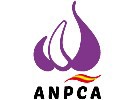At its Ordinary General Assembly, The National Association of Garlic Producers and Marketers, ANPCA, presented the 2024 Strategic Plan for the Spanish Garlic Sector.
The area devoted to garlic cultivation has decreased by more than 30% compared to 2022. "This showcases the great difficulties that Spanish garlic is facing, especially the purple garlic, whose surface area has fallen below 40% of the total for the first time," stated the secretary of the association, José Carlos Arroyo (PROACO S.L.). The main threats to the sector, Arroyo stressed, are "the strong increase in production costs and other issues, such as increasingly complicated access to water, labor issues, and a CAP that hinders access to leased land."
According to the ANPCA, Garlic is increasingly defenseless in the face of the avalanche of measures that different governments are adopting, with special emphasis on dismantling the phytosanitary defense system by systematically banning active substances producers use against pests and diseases. Andrés García (Antogar S.L.) defended the strategy presented by ANPCA to request that the European Commission authorizations of new active substances be carried out jointly by MRL areas and not by countries.
This would allow the companies to register a new active substance in all the hectares cultivated in different countries in the same area under one single registration, thus lowering costs. "Our failure would diminish garlic cultivation in our fields and force us to consume garlic from third countries that do not have the same quality or food security as we do," Garcia said.
The president of the ANPCA, Juan Salvador Peregrin (CEO of SAT Peregrin), presented the Strategic Plan for the Spanish Garlic Sector. The plan focuses on three main points: production management, process analysis in facilities, and controlling external factors.
It also addresses other issues such as the surveillance and supervision of bilateral free trade agreements that the EU signs with third countries, the status of the Spanish agricultural insurance system, labor issues, the fight against fraud, and controlling how products are marketed to prevent consumer fraud. Regarding international trade, the ANPCA wants the sector to request the European Commission's DG TAXUD clarify the TARIC codes on which garlic is imported into the EU. According to Juan Blázquez (SANTA MONICA Cooperative), "This would clarify the identification of the tariff items of each product, which would prevent fresh garlic from being imported as frozen garlic to avoid the deterrent tariffs that the EU has established for this crop."
For more information:
ANPCA
www.anpca.es
